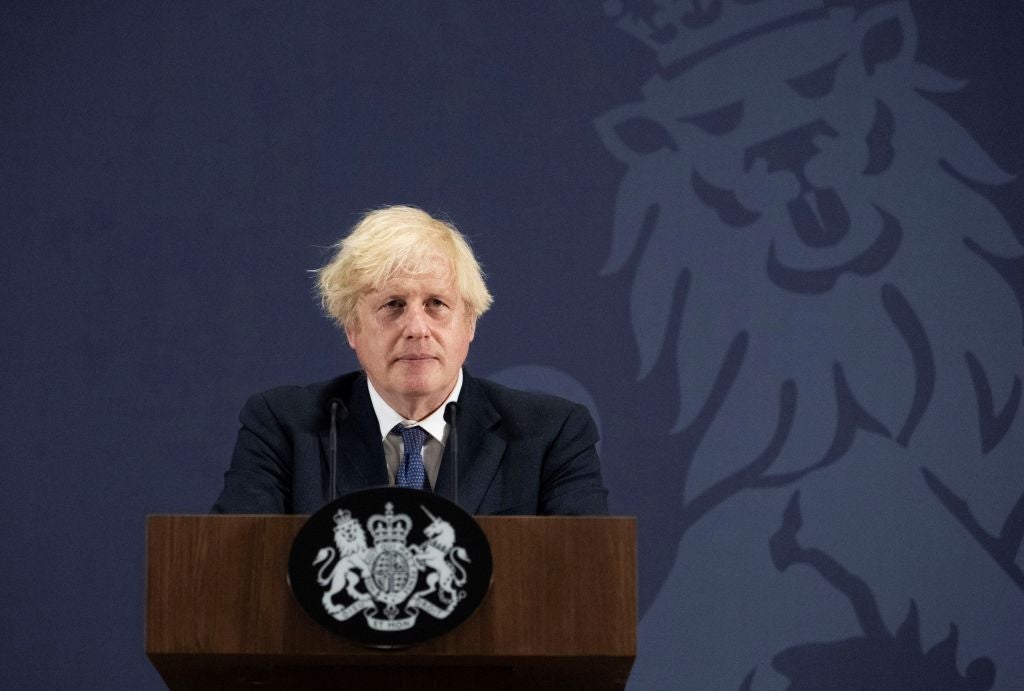

In a highly anticipated speech on Thursday 15 July, the UK Prime Minister Boris Johnson was expected to set out his plans for ‘levelling-up’ the country’s economically left-behind regions.
In the event, the speech included few new or concrete proposals. Writing in the Times, director of the Institute for Fiscal Studies Paul Johnson described the speech as “much trailed but ultimately empty”.
Reducing the UK’s soaring regional inequalities, the worst in the OECD, was a key plank of the Conservatives’ 2019 election manifesto and has been central to the government’s domestic agenda beyond Covid-19.
Regional inequality in the UK is growing
Regional inequality in the UK has grown significantly since 1998, under both Labour and Conservative governments. In 1998, the GDP per capita of the UK’s poorest region, the North East, was 45% that of its richest region, London. By 2019, this share had fallen to just 40%.
The need for deeds, not words, has never been more urgent. Erica Roscoe, IPPR North
The immediate cause is uneven levels of growth. GDP per capita in the North East has grown by 83% since 1998, a rate far outstripped by the 109% growth seen in London.
The inequality is also reflected in household earnings, with gross disposable household income growing at an average rate of 3.9% in London since 1998 compared with just 2.9% in Yorkshire, the North East and Wales.
This disparity has been driven not so much by wages as by property income and profits. Wages grew an average of 4.3% per year in London, compared with 3.6% across the UK as a whole – a difference of 0.7 percentage points.
By contrast, income from operating surpluses and property grew by a respective average of 4% and 3.6% in London, compared with just 2.2% and 1.9% for the UK as a whole – a difference of 1.8 and 1.7 percentage points, respectively.
While regional disparities have attracted the greatest attention, it is local inequalities that have grown the fastest in recent years. Since 1998, inequality in GDP per capita has increased twice as fast at the local authority level as it has at the regional level.
From 2011 to 2018, the average distance between the UK’s poorest and richest neighbourhoods, by post-housing household income, fell from 211km to 207km. The UK's richest and fourth-poorest local authorities, the City of London and Lewisham, are just 8km apart.
Despite widespread anticipation that his speech would outline the government’s plans to tackle these issues, Johnson’s speech failed to deliver any new, detailed policy proposals.
Many of the plans raised in the speech, such as an increase in police numbers and funding for research and development, were neither new nor targeted at underperforming regions.
Perhaps the most consequential of the government’s concrete proposals for regional economic reform, the creation of free ports, received only a passing mention. No attempt was made to engage with concerns that free ports risk exacerbating existing regional and intra-regional inequalities or creating havens of crime in the UK's left-behind regions.
Has levelling-up agenda stalled?
Erica Roscoe, senior research fellow at think tank IPPR North, said: “Johnson promised to ‘level up’ the country in his first speech as Prime Minister. It was welcome rhetoric, but two years on our deep divides between and within regions are growing, and places like the North are still waiting for the powers, resources and transparency they need to see from government to level up for themselves.
“The prime minister is right to identify that the status quo here in the UK has benefitted nobody. For too long the Treasury has held onto major decisions and has treated London and the South East as a cash cow for tax revenue, rather than seeking to deliver a good life for people.
“This is dysfunctional. People nowhere have benefitted – regions have been kept back and London has some of the highest levels of poverty in the country. So the need for deeds, not words, has never been more urgent.”







